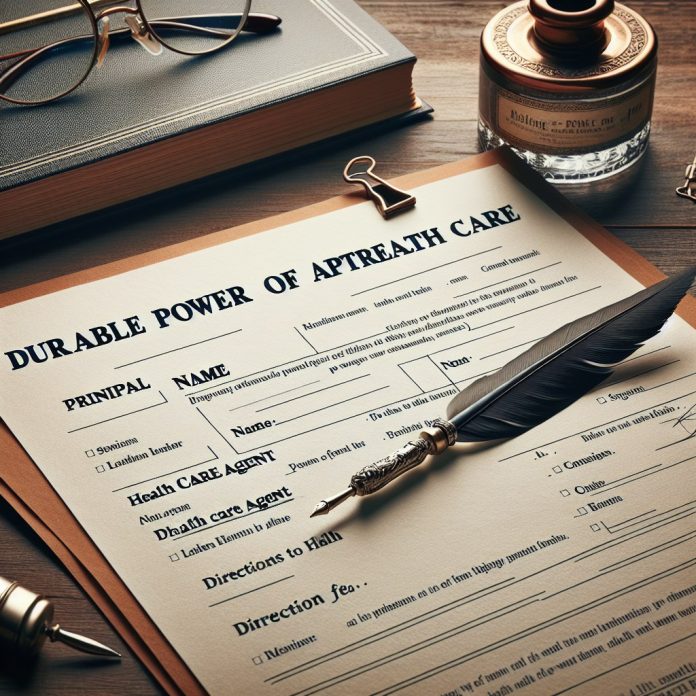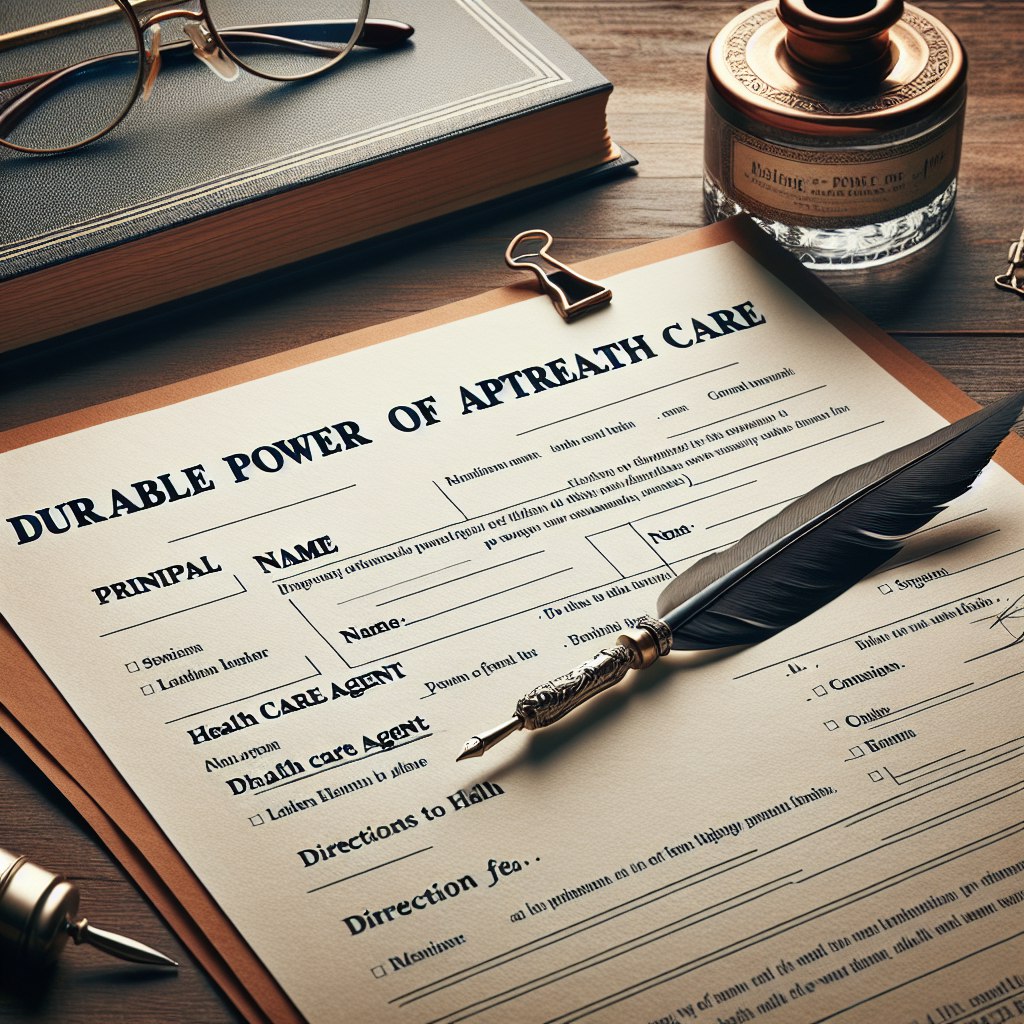
Understanding Durable Power of Attorney for Health Care: A Comprehensive Guide
What is a Durable Power of Attorney for Health Care?
🔍 Definition: A Durable Power of Attorney for Health Care (DPAHC) is a legal document that allows an individual (the principal) to designate another person (the agent or attorney-in-fact) to make health care decisions on their behalf if they become incapacitated and unable to make decisions for themselves.
Importance of a Durable Power of Attorney for Health Care
Ensuring Your Wishes are Respected
📝 Personal Autonomy: By creating a DPAHC, you ensure that your health care preferences are followed even when you cannot communicate them. This legal tool empowers your chosen agent to make decisions that align with your values and desires.
Avoiding Family Conflicts
👪 Conflict Prevention: In the absence of clear directives, family members might have conflicting opinions about the best course of action for your health care. A DPAHC minimizes the risk of disputes by appointing a single decision-maker.
Legal Authority
⚖️ Legal Clarity: Health care providers are more likely to follow the directives of an appointed agent because the DPAHC provides clear legal authority. This document ensures that medical professionals adhere to your agent’s decisions without hesitation.
How to Create a Durable Power of Attorney for Health Care
Step 1: Choose Your Agent
🔍 Selecting an Agent: Your agent should be someone you trust implicitly, such as a spouse, family member, or close friend. Ensure that the person is willing and able to take on this responsibility.
Step 2: Discuss Your Wishes
💬 Communication: Have a thorough discussion with your chosen agent about your health care preferences, including any specific treatments you want or do not want. This conversation ensures that your agent fully understands your wishes.
Step 3: Draft the Document
📄 Legal Drafting: While templates are available online, it’s advisable to consult with an attorney to ensure that the document complies with state laws and accurately reflects your preferences.
Step 4: Sign and Notarize
✍️ Signing: The document must be signed by you and often needs to be witnessed or notarized, depending on state requirements. This step formalizes the document and makes it legally binding.
Step 5: Distribute Copies
📂 Distribution: Provide copies of the DPAHC to your agent, family members, and health care providers. Keeping multiple copies ensures that your directives are accessible when needed.
Key Components of a Durable Power of Attorney for Health Care
Identification of the Principal and Agent
🆔 Details: The document should clearly identify you (the principal) and the person you are appointing as your agent.
Scope of Authority
📋 Decision-Making Power: Outline the specific health care decisions your agent is authorized to make. This may include decisions about medical treatments, surgical procedures, and long-term care.
Activation Clause
🚦 Triggering Event: Specify when the DPAHC comes into effect. Typically, it becomes active when you are deemed incapacitated by a medical professional.
Instructions on Health Care Preferences
🩺 Treatment Preferences: Include detailed instructions on your health care preferences. This might cover topics like life-sustaining treatments, pain management, and organ donation.
Successor Agents
🔄 Alternates: Designate successor agents in case your primary agent is unable or unwilling to act. This ensures continuity in decision-making.
Differences Between Durable Power of Attorney for Health Care and Other Legal Documents
Living Will
📑 Comparison: A living will specifies your wishes regarding end-of-life care but does not appoint an agent. A DPAHC, on the other hand, appoints an agent to make a wide range of health care decisions on your behalf.
General Power of Attorney
🖋️ Scope: A general power of attorney grants someone authority to handle financial and legal matters, but it may not include health care decisions. A DPAHC specifically covers health care decisions.

Benefits of a Durable Power of Attorney for Health Care
Peace of Mind
🧘♂️ Reassurance: Knowing that a trusted person will make health care decisions on your behalf provides peace of mind. You can be assured that your health care preferences will be respected even if you are unable to communicate them.
Comprehensive Coverage
🛡️ All-Encompassing: A DPAHC covers a wide range of health care decisions, ensuring that all aspects of your medical care are addressed according to your wishes.
Flexibility
🔄 Adaptability: The agent can make real-time decisions based on the current medical situation, providing a level of flexibility that static directives, like a living will, cannot offer.
Common Misconceptions About Durable Power of Attorney for Health Care
It’s Only for the Elderly
👵 Age Irrelevance: While often associated with older adults, a DPAHC is important for anyone, regardless of age, as accidents and sudden illnesses can happen to anyone.
It’s Difficult to Create
🛠️ Ease of Creation: With the right guidance, creating a DPAHC is straightforward. Legal professionals can assist in drafting a document that meets your needs and complies with state laws.
It Means Giving Up Control
🤝 Shared Responsibility: A DPAHC does not mean you are giving up control of your health care decisions. It simply ensures that your preferences are followed if you become unable to make decisions yourself.
Conclusion
Creating a Durable Power of Attorney for Health Care is a proactive step towards safeguarding your health care preferences. By appointing a trusted agent, you ensure that your medical treatment aligns with your wishes, providing peace of mind for you and your loved ones. Whether you are young or old, healthy or facing medical challenges, a DPAHC is a valuable tool that protects your autonomy and ensures comprehensive health care decision-making. Don’t wait—take action today to secure your health care future.



















